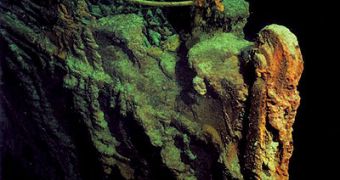A US judge is expected to soon decide the faith of the artifacts that have been recovered from the RMS Titanic, after the luxury ocean liner sunk on April 14th, 1912. Considered at the time to be the largest passenger steamship in the world, the vessel was severely damaged following a collision with a large iceberg, and was sunken in the Northern Atlantic.
The job that US District Judge Rebecca Beach Smith has to do is to decide if the impressive collection of artifacts that have been recovered from the liner will become public goods, in that all people interested will be able to visit them, or whether they will remain in private custody, to be sold to collectors, or auctioned at various houses.
The faith of more than 5,900 items of china, ship fittings and personal belongings is at stake, and the jurist is expected to rule within the next few weeks, to keep them all together.
Also, a number of other lawyers are working with Smith to ensure that the site of the wreckage is preserved, and that all activities around it are suspended, or only allowed under international surveillance. The remains are located some 2.5 miles (4 kilometers) under the surface of the ocean, but that's no guarantee that the site will remain undamaged.
The judge and all the other jurists basically want to make the place a memorial, to honor the memory of the estimated 1,522 people that died when the disaster happened. National Oceanic and Atmospheric Administration (NOAA) international law office attorney Ole Varmer, who helped develop guidelines for handling the RMS Titanic, says that, “For the most part, the value of Titanic is its history – and not from some pile of gold, silver and jewels.”
The judge is also worried about the financial stability of RMS Titanic Inc., the company that has recovered the artifacts in six dives over the 24 years since the wreck was first discovered. Because the firm has recently undergone internal restructuring and lost its director, Smith believes that the treasures should go into the public domain as fast as possible, because she cosiders that the company will soon be unable to manage this important piece of history.

 14 DAY TRIAL //
14 DAY TRIAL //